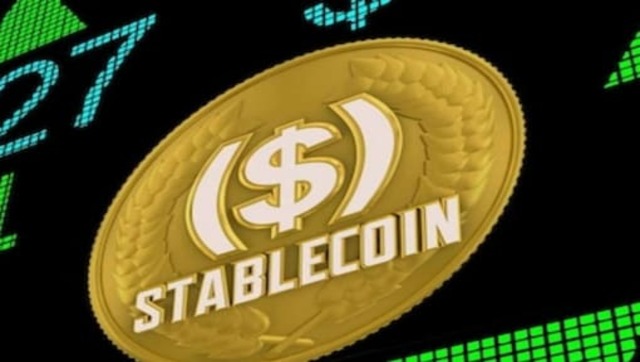Cryptocurrencies known as stablecoins have their value anchored to another coin, product, or financial instrument. They seek to provide an alternative to the substantial volatility of more popular cryptocurrencies, such as Bitcoin (BTC), which has rendered digital currencies less viable for regular transactions. Stablecoins make an effort to link their market value to an external standard, typically a fiat currency. As a medium of exchange, they perform better than cryptocurrencies which are more volatile. Stablecoins can use an algorithm to control supply or they can be connected to the price of gold or another commodity, such as the US dollar.
According to their functionality and reservation, stablecoins can be divided into four categories.
Fiat-collateralised stablecoins
These are the most popular ones. Stablecoins that are fiat-collateralized keep a reserve of one or more fiat currencies, like the dollar, as collateral for guaranteeing their worth.
Crypto-backed stablecoins
These are supported by other cryptocurrencies. Such stablecoins are overcollateralized, meaning that the value of cryptocurrency kept in reserve exceeds the value of the stablecoins produced, because the reserve cryptocurrency may be subject to severe volatility as well.
Commodity-backed stablecoins
Digital currencies backed by physical assets like gold, oil, or other commodities are known as commodity-backed stablecoins. They are designed for investors who want to invest in cryptocurrencies but want something more dependable and with better access.
Non-collateralised stablecoins or algorithmic stablecoins
Stablecoins that use algorithms might or might not have reserves. Their main difference is that an algorithmic stablecoin maintains its value by using an algorithm, which is effectively a computer program that follows a predetermined calculation.
Quick Reads
View AllBusinesses can take payments for a very low cost by using stablecoins, and governments can run conditional cash transfer schemes more easily than in the past using this digital currency. Stablecoins can also be used to provide financial relief to people all over the world because of their lightning-fast transaction speed. Sending money across international borders is another beneficiary aspect.
Stablecoins’ crucial role in the ecosystem by enabling simplicity in crypto trading, staking and lending, is solidified by the rising popularity of cryptocurrencies and the consistency they bring to decentralised finance. It is predicted that financial regulatory agencies and related stakeholders will continue to collaborate closely on measures to stimulate financial innovation while minimising associated risks, even though certain countries’ laws may impose new limits and demands on stablecoin issuers.
Read all the Latest News, Trending News, Cricket News, Bollywood News,
India News and Entertainment News here. Follow us on
Facebook,
Twitter and
Instagram.


)

)
)
)
)
)
)
)
)



